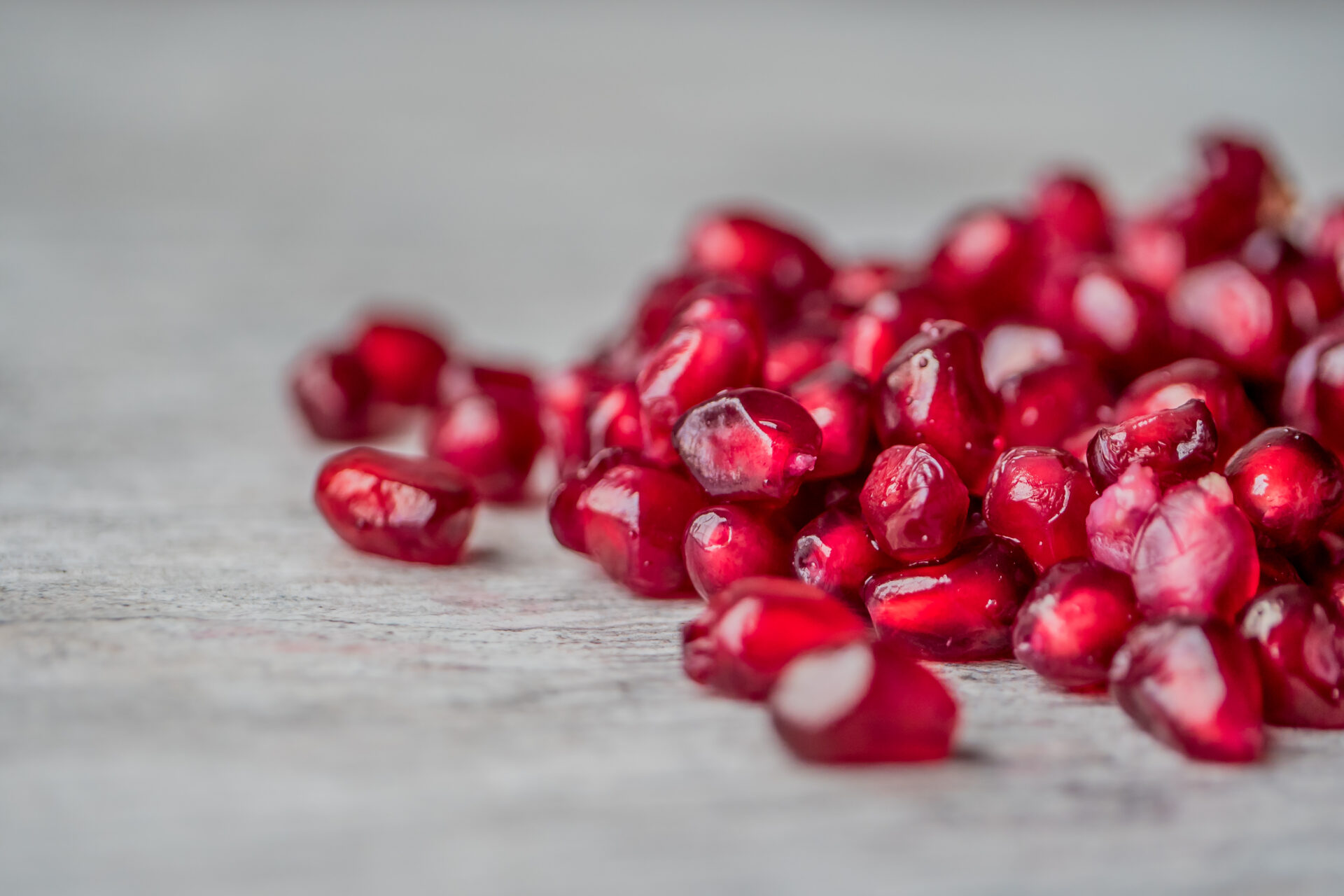Folate, also known as vitamin B9, is a crucial nutrient that plays a vital role in maintaining good health. It is an essential nutrient that our body needs to produce DNA, RNA, and red blood cells. Folate is also essential for cell growth and division, making it especially important during pregnancy and infancy. A deficiency of folate can lead to various health problems, including anemia, birth defects, and even some types of cancer. In this article, we will discuss the importance of folate in a healthy diet and how you can ensure that you are getting enough of this vital nutrient.
What is folate and why is it important for a healthy diet?
Folate, also known as vitamin B9, is a water-soluble vitamin that plays a crucial role in many bodily functions. It is essential for the growth and development of cells and tissues in the body, making it particularly important for pregnant women and their developing babies. Folate also helps to produce DNA and RNA, which are the building blocks of cells. It is also involved in the production of red blood cells and helps to convert carbohydrates into energy.
Folate is important for a healthy diet because it helps to prevent certain birth defects, promotes heart health, and may reduce the risk of certain types of cancer. A deficiency in folate can lead to anemia, fatigue, and weakness. It is therefore important to ensure that you are getting enough folate in your diet.
The benefits of folate for pregnant women and their babies
Folate is especially important for pregnant women and their developing babies. Adequate folate intake before and during pregnancy can help prevent certain birth defects, such as neural tube defects, which affect the brain, spine, or spinal cord. In fact, the Centers for Disease Control and Prevention (CDC) recommends that all women of childbearing age consume 400 micrograms (mcg) of folate daily to prevent these birth defects.
Folate is also important for the growth and development of the baby. It helps to form the neural tube, which later becomes the baby’s brain and spinal cord. Folate deficiency during pregnancy has been linked to low birth weight, premature birth, and other complications.
In addition, folate may also reduce the risk of other birth defects, such as cleft lip and palate, and congenital heart defects. It is important for pregnant women to speak with their healthcare provider about their folate intake and to consider taking a folate supplement if they are not getting enough through their diet.
How folate can reduce the risk of heart disease and stroke
Folate plays a key role in reducing the risk of heart disease and stroke. It helps to lower levels of homocysteine, an amino acid that is associated with an increased risk of heart disease and stroke. High levels of homocysteine have also been linked to other health problems, such as cognitive decline and osteoporosis.
Studies have shown that individuals with higher folate intake have a lower risk of heart disease and stroke. In fact, one study found that individuals with the highest levels of folate had a 20% lower risk of stroke compared to those with the lowest levels of folate. Another study found that increasing folate intake by 400 mcg per day was associated with a 10% reduction in the risk of heart disease.
It is important to note that while folate can be beneficial for heart health, it is not a replacement for other healthy lifestyle habits, such as regular exercise, maintaining a healthy weight, and not smoking. By incorporating folate-rich foods into your diet and making other healthy choices, you can help reduce your risk of heart disease and stroke.
The link between folate and mental health
Folate may also play a role in maintaining good mental health. Studies have found that low levels of folate are associated with an increased risk of depression, cognitive decline, and dementia. Folate is involved in the production of several neurotransmitters, including serotonin, dopamine, and norepinephrine, which are important for regulating mood, sleep, and appetite.
One study found that individuals with depression had lower levels of folate in their blood compared to those without depression. Another study found that increasing folate intake was associated with a decrease in depressive symptoms in older adults.
In addition to depression, folate may also be beneficial for cognitive function. Studies have found that higher levels of folate intake are associated with better cognitive function and a reduced risk of dementia. However, more research is needed to fully understand the link between folate and mental health.
It is important to note that while folate may be beneficial for mental health, it should not be used as a replacement for other treatments for depression or cognitive decline. If you are experiencing symptoms of depression or cognitive decline, it is important to speak with your healthcare provider.
Foods that are high in folate and how to incorporate them into your diet
Folate is found naturally in many foods, making it easy to incorporate into your diet. Some of the best sources of folate include leafy green vegetables, such as spinach and kale, as well as asparagus, broccoli, avocado, and legumes, such as lentils and chickpeas. Fruits such as oranges, strawberries, and papayas are also good sources of folate.
In addition, many breads, cereals, and other grains are fortified with folic acid, which is a synthetic form of folate. This makes it easier for individuals to meet their daily recommended intake of folate. When choosing fortified foods, be sure to check the label to ensure that they contain folic acid.
To incorporate more folate-rich foods into your diet, try adding spinach or kale to your morning smoothie, snacking on raw vegetables with hummus, or adding lentils to your favorite soup or salad. You can also try swapping out white rice or pasta for brown rice or quinoa, which are both good sources of folate.
It is important to note that cooking can reduce the amount of folate in foods, so try to eat some raw or lightly cooked fruits and vegetables to maximize your folate intake.
The dangers of folate deficiency and how to prevent it
Folate deficiency can lead to a variety of health problems, including anemia, fatigue, weakness, and an increased risk of certain birth defects. In addition, low levels of folate have been associated with an increased risk of heart disease, stroke, and certain types of cancer.
Individuals who are at an increased risk of folate deficiency include pregnant women, individuals with digestive disorders, such as celiac disease or inflammatory bowel disease, and individuals who abuse alcohol. Certain medications, such as methotrexate, can also interfere with folate absorption.
To prevent folate deficiency, it is important to consume a diet rich in folate-rich foods, such as leafy green vegetables, legumes, and fortified cereals. If you are pregnant, your healthcare provider may recommend taking a folate supplement to ensure that you are getting enough folate to support your baby’s development.
If you have a digestive disorder or are taking medications that interfere with folate absorption, your healthcare provider may recommend a higher dose of folate or a different form of folate that is more easily absorbed by the body.
In conclusion, folate is an essential nutrient that plays a crucial role in many bodily functions. It is important to consume a diet rich in folate-rich foods and to speak with your healthcare provider about your folate intake to ensure that you are getting enough to support your overall health and well-being.
The role of folate in cancer prevention
Folate may also play a role in reducing the risk of certain types of cancer, such as colon, breast, and pancreatic cancer. Folate is involved in DNA synthesis and repair, and a deficiency in folate can lead to DNA damage and mutations that can increase the risk of cancer.
Several studies have found that individuals with higher folate intake have a lower risk of colon and breast cancer. In addition, one study found that increasing folate intake was associated with a lower risk of pancreatic cancer.
However, it is important to note that some studies have found that high doses of folic acid supplements may actually increase the risk of certain cancers, such as prostate cancer. It is therefore important to speak with your healthcare provider about your folate intake and to avoid taking high doses of folic acid supplements unless recommended by a healthcare provider.
The best way to ensure that you are getting enough folate to support your overall health and reduce your risk of cancer is to consume a diet rich in folate-rich foods, such as leafy green vegetables, legumes, and fortified cereals.
How to supplement your diet with folate
Folate is an essential nutrient that our bodies need to function properly. While it is important to get folate from our diet, sometimes it can be difficult to consume enough through food alone. In these cases, supplements can be a helpful addition to a healthy diet.
There are two forms of folate supplements: folic acid and methylfolate. Folic acid is the synthetic form of folate and is commonly found in supplements and fortified foods. Methylfolate is the natural form of folate and is found in some supplements.
When to take folate supplements
If you are pregnant or trying to conceive, it is recommended that you take a daily folic acid supplement of 400-800 micrograms. This is to reduce the risk of birth defects in the baby’s brain and spine.
If you have a folate deficiency or have trouble absorbing folate from your diet, your doctor may recommend a higher dose of folate supplements.
Choosing a folate supplement
When choosing a folate supplement, look for one that contains either folic acid or methylfolate. It is important to choose a reputable brand and to check the label for the correct dosage.
It is also important to talk to your doctor before starting any new supplements, especially if you are taking any medications or have any health conditions.
The recommended daily intake of folate for different age groups
The recommended daily intake of folate varies depending on age and gender. Folate is measured in micrograms (mcg) and can be obtained through a healthy diet or supplements. Here are the recommended daily intakes of folate for different age groups:
Infants
From birth to 6 months, infants need 65 mcg of folate per day. From 7 to 12 months, the recommended intake increases to 80 mcg per day.
Children
From 1 to 3 years old, children need 150 mcg of folate per day. From 4 to 8 years old, the recommended intake increases to 200 mcg per day.
Teens and adults
From 9 to 13 years old, the recommended intake is 300 mcg per day. From 14 years old and up, including pregnant and breastfeeding women, the recommended intake is 400 mcg per day.
Elderly
As we age, our bodies may have trouble absorbing nutrients, including folate. For adults over the age of 50, the recommended intake increases to 400 mcg per day.
It is important to note that some people may require higher doses of folate, especially those with certain medical conditions or those taking certain medications. It is always best to talk to your doctor about your specific nutrient needs.
Conclusion
Folate is an important nutrient that our bodies need to function properly. The recommended daily intake of folate varies depending on age and gender, but a healthy diet rich in folate can help most people meet their daily needs. If you are unsure about your specific nutrient needs, talk to your doctor or a registered dietitian.





Leave a reply